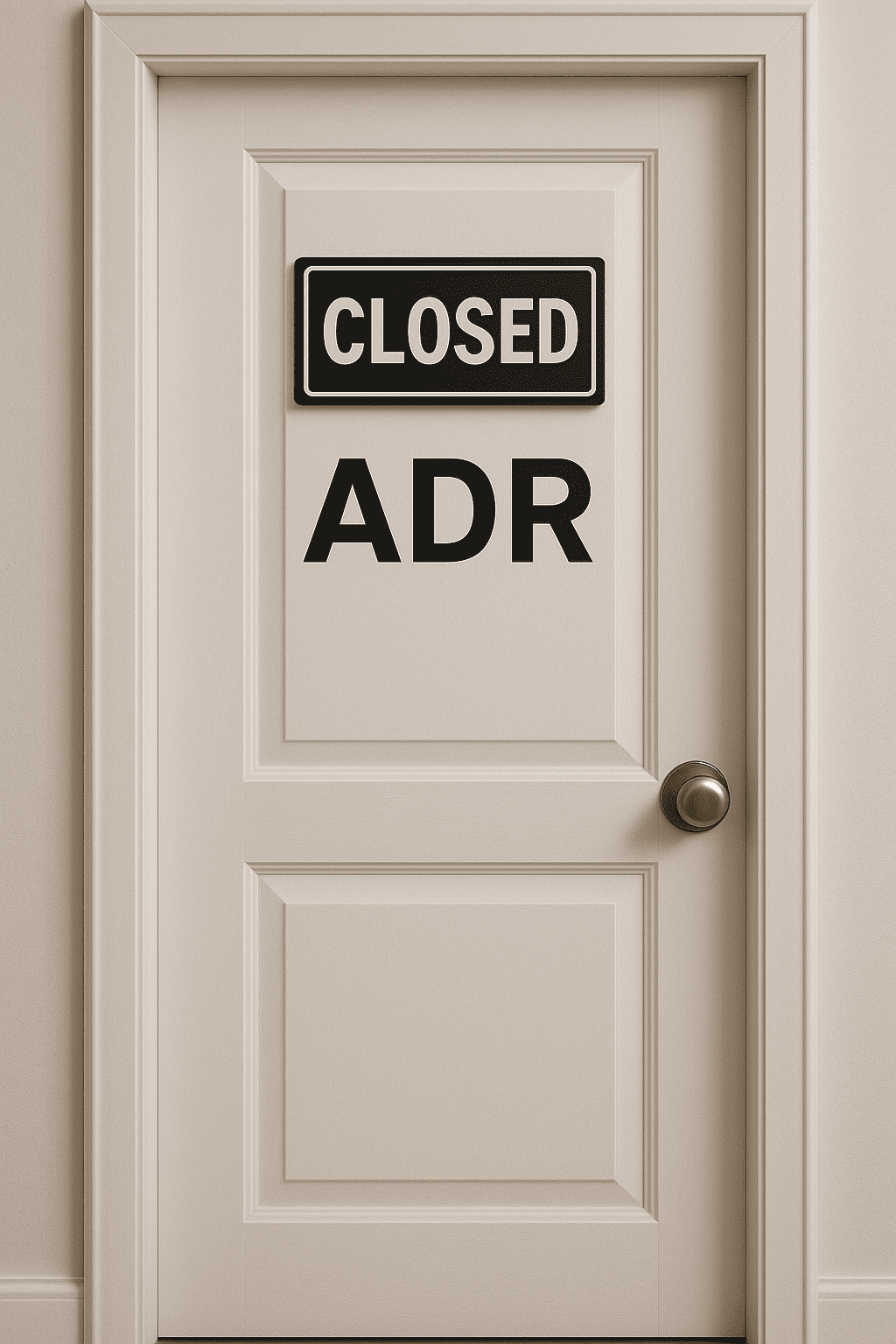Refusal to Engage in ADR? Court Upholds £229,848 Interim Costs Order Despite Allegations

In the recent High Court decision of Elphicke v Times Media Ltd [2025] EWHC 1554 (KB), Mr Justice Saini dismissed an appeal challenging a significant interim costs order of £229,848.41, despite the Appellant’s arguments that the Respondent had acted improperly by failing to engage in alternative dispute resolution (ADR) and had lied in pre-action correspondence. The case reaffirms the robust approach the courts adopt in managing discontinuance and costs, and provides useful guidance on when allegations of failure to engage in ADR may influence costs awards—particularly in the context of CPR 38.6.
Background: Discontinuance and Alleged Misconduct
The litigation concerned serious allegations that had been discontinued by the claimant, former MP Charlie Elphicke. He subsequently faced an uphill battle in trying to persuade the court to depart from the usual rule in CPR 38.6, which presumes that a discontinuing party will pay the defendant’s costs.
On 19 November 2024, the Master ordered the Appellant to make an interim payment of £229,848.41 towards the Respondent’s costs. On appeal, the Appellant sought to argue that the court should have disapplied CPR 38.6 more broadly based on the Defendant’s conduct—specifically:
- An alleged lie in pre-action correspondence by a Times Media employee (a solicitor),
- A failure by the Defendant to engage in ADR despite proposals.
ADR Allegations: More Appropriate for Detailed Assessment
The appeal turned in part on whether the Respondent’s refusal to participate in ADR justified departing from the default costs position. The Appellant relied on a series of well-known authorities, including:
- PGF II SA v OMFS Company Ltd [2013] EWCA Civ 1288
- Laporte v Commissioner of Police [2015] EWHC 371 (QB)
- Wales v CBRE Managed Services Ltd [2020] EWHC 1050 (QB)
These cases establish that an unreasonable refusal to mediate or engage in ADR may justify adverse costs consequences.
However, Mr Justice Saini distinguished these cases on a critical point: none of them involved a discontinued claim. Accordingly, CPR 38.6—the rule which entitles a defendant to their costs upon discontinuance—remained the starting point.
The Court concluded that the Master was entitled to treat the alleged ADR failure and the lying allegation as contentious factual issues which would have been determined at trial. Having been discontinued, they were not suitable for resolution at the summary stage. The proper forum for these issues was the detailed costs assessment, where a costs judge could consider conduct under CPR 44.11, potentially adjusting costs if misconduct were proven.
Court’s Approach: Procedural Discipline and Judicial Restraint
In dismissing the appeal, Mr Justice Saini reaffirmed that the court must be cautious not to turn a costs determination into a satellite trial of disputed allegations—particularly where those allegations go to the heart of the case and liability. To do otherwise, he noted, would be to “re-litigate those points,” which is precisely what CPR 38.6 seeks to avoid following a discontinuance.
Importantly, the judge endorsed the Master’s reasoning that conduct issues relating to ADR and alleged dishonesty could still be scrutinised in the detailed assessment phase, where a more granular analysis of correspondence, attendance notes and documents could occur.
Key Takeaways for Litigators and Mediators
- CPR 38.6 is a formidable hurdle – Once a claim is discontinued, the burden is firmly on the discontinuing party to show why the usual costs rule should not apply.
- Allegations of ADR refusal must be clear-cut – Without a trial or agreed facts, disputed claims of refusal to mediate will rarely carry the day at the interim stage.
- Save it for detailed assessment – Where there are contested issues of conduct (e.g. lying or failing to mediate), the appropriate arena is usually the costs judge under CPR 44.11, not the trial judge or appellate court.
- ADR is still a strategic imperative – While the court refused to treat the alleged failure to mediate as determinative in this case, parties who unreasonably refuse to consider ADR may still face adverse consequences—particularly where claims proceed to trial.
Conclusion
The Elphicke appeal underscores the courts’ reluctance to permit broad-ranging conduct allegations to subvert procedural rules governing discontinuance and costs. While the role of ADR in litigation remains vital—and refusals to engage in mediation can have real costs implications—this case reminds us that such arguments must be rooted in established facts, not disputed assertions.
As ever, litigants and their advisers are well advised to keep the door to mediation open—and to document their willingness to engage clearly and contemporaneously. In a climate where courts are increasingly endorsing ADR, silence or avoidance can be costly—but only when the facts support such a finding in the appropriate forum.
